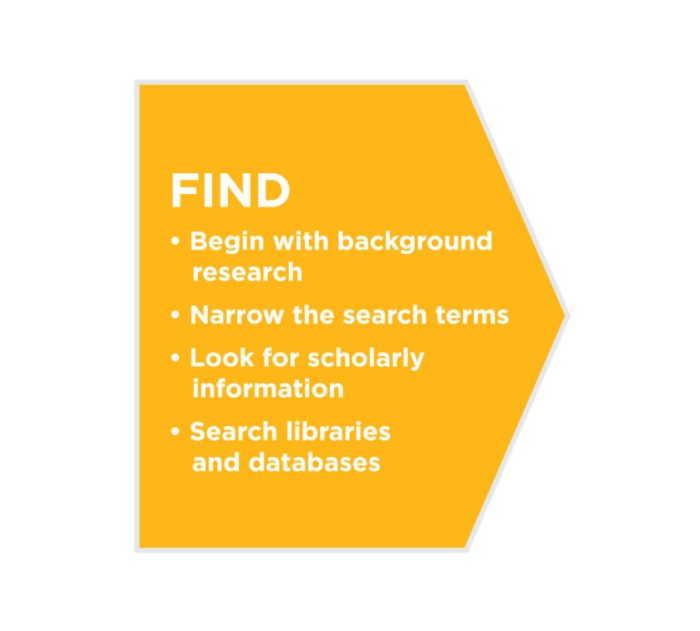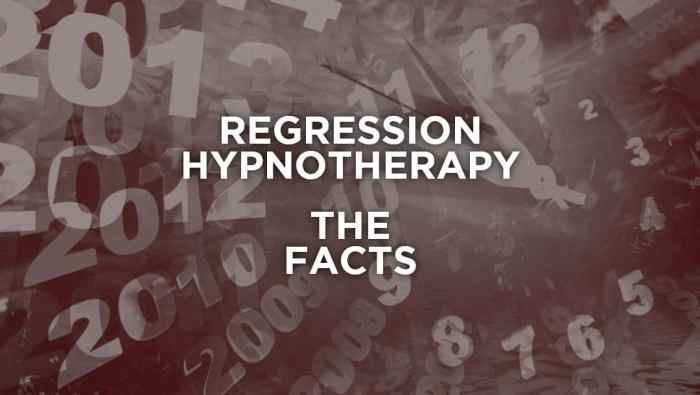Questions to Ask a Psychic: Dive into the world of psychic readings with a practical guide to getting the most out of your experience. This exploration delves into various psychic techniques like tarot, palm reading, and astrology, providing a deeper understanding of their methodologies and common themes. We’ll also equip you with the tools to ask insightful questions, avoid pitfalls, and interpret responses with clarity.
Get ready to uncover potential insights and gain a deeper connection to yourself and the world around you.
This comprehensive guide will help you understand the nature of psychic readings, from the different types to the cultural context. We’ll explore effective questioning strategies, common themes, potential pitfalls, ethical considerations, and methods for interpreting responses. Whether you’re a seasoned seeker or a curious beginner, this guide provides a roadmap to navigate the fascinating world of psychic interaction.
Understanding the Nature of Psychic Readings
Psychic readings, a practice spanning centuries, offer a glimpse into interpretations of the future, past, or present. They encompass a diverse range of techniques, each drawing from unique cultural and historical contexts, and often involve a profound exploration of the human psyche. While not scientifically validated, psychic readings hold significant cultural and personal value for many.Psychic readings are interpretations of information, often perceived as insights into the future, past, or present.
These interpretations are made through various methods, including but not limited to tarot card readings, palm readings, astrology, and intuitive insights. The approaches used vary greatly depending on the psychic’s chosen methodology. Some rely heavily on intuition and observation, while others may use specific tools or systems. Common themes in these readings frequently involve life paths, relationships, or potential challenges.
Different Types of Psychic Readings
Various methods are employed in psychic readings, each with its own unique history and cultural context. These methods include tarot, palm reading, and astrology, among others. These techniques utilize different tools and approaches to interpret information, often focusing on patterns, symbolism, and personal insights.
Tarot Readings
Tarot card readings utilize a deck of 78 cards, each with unique imagery and symbolic meaning. These cards are shuffled and drawn to reveal potential insights into a person’s life path, relationships, or challenges. Each card holds a specific meaning, and the arrangement of the cards often reveals broader patterns and messages. The interpretation of these readings is highly subjective, relying heavily on the psychic’s intuition and understanding of the cards’ symbolism.
For example, a card depicting a journey might be interpreted as a significant life change or a new opportunity.
Palm Reading, Questions to Ask a Psychic
Palm reading, or chiromancy, focuses on the lines, shapes, and mounts on the palm of the hand. These features are believed to hold clues about a person’s character, personality traits, and future. The lines are often interpreted as representing different aspects of life, while the mounts represent specific characteristics. For instance, a prominent life line might be associated with a long and fulfilling life.
The interpretation process often involves extensive knowledge of the symbolism and meanings associated with these hand features.
Astrology
Astrology uses celestial bodies, particularly the positions of planets and stars at the time of a person’s birth, to gain insights into their personality, relationships, and potential life path. The alignment of these celestial bodies is believed to influence different aspects of a person’s life, from career choices to relationship dynamics. Interpretations are based on astrological charts, which illustrate the positions of planets and stars at a specific time and location.
For example, the placement of Mars in a particular sign might suggest an assertive or energetic personality.
Comparison of Psychic Reading Types
| Characteristic | Tarot | Palm Reading | Astrology |
|---|---|---|---|
| Method | Card interpretation | Hand analysis | Celestial body positions |
| Tools | Tarot deck | Hand | Astrological charts |
| Focus | Life path, relationships, challenges | Character, personality, future | Personality, relationships, life path |
| Interpretation | Subjective, symbolic | Subjective, symbolic | Subjective, based on astrological theories |
Psychological Factors in Interest
The human desire for understanding and prediction is a significant factor in the enduring appeal of psychic readings. People often seek comfort and guidance in uncertain times, looking for answers to life’s questions. The desire for self-knowledge and insight also plays a role, as readings can offer interpretations of one’s strengths, weaknesses, and potential future paths. The sense of connection with something beyond the tangible world also contributes to the appeal, fostering a sense of mystery and possibility.
Effective Question Formulation for Psychics
Asking insightful questions is crucial for harnessing the potential of a psychic reading. A well-structured and precise query can unlock deeper, more meaningful insights, while vague or ambiguous questions often lead to superficial responses. This section will Artikel a structured approach to crafting effective questions for psychic readings, emphasizing clarity and precision.This guide provides a practical framework for formulating questions that yield meaningful and relevant information.
The key is to move beyond simple yes/no queries and delve into the complexities of your concerns and desires. By adopting a structured approach to question formulation, you’ll be better equipped to receive valuable and insightful responses from a psychic.
Designing a Structured Framework for Questions
A structured approach to formulating questions ensures that you receive targeted and relevant insights. This framework involves identifying the core issue, exploring potential perspectives, and considering various angles to the situation. Begin by clearly defining the area of concern, whether it’s a relationship problem, career dilemma, or personal challenge. Then, brainstorm different possible interpretations and outcomes. By exploring diverse perspectives, you increase the chances of receiving a nuanced and comprehensive response.
Examples of Open-Ended Questions
Open-ended questions encourage the psychic to provide detailed and insightful responses, rather than simply offering yes/no answers. They invite exploration and interpretation, enabling a deeper understanding of the situation. Here are some examples:
- What are the underlying patterns contributing to my current relationship challenges?
- How can I best navigate the potential career crossroads I’m facing?
- What are the most significant obstacles standing in the way of achieving my personal goals?
- What are the key lessons I need to learn from this current situation?
- What are the potential future implications of my current choices?
Questions to Explore Specific Concerns
Questions tailored to specific concerns allow for a more focused and personalized reading. For relationship issues, you might ask:
- What are the underlying emotional needs of my partner that I might not be fulfilling?
- What are the potential roadblocks to resolving the conflicts in our relationship?
- What are the opportunities for growth and reconciliation within our relationship?
For career choices, you might ask:
- What are the key strengths and weaknesses that I should consider when evaluating different career paths?
- What are the potential career paths that align with my inherent talents and aspirations?
- What are the most important steps I should take to achieve my career goals?
Avoiding Ambiguity and Vagueness
Vague or ambiguous questions lead to equally vague and unhelpful responses. It’s essential to be precise and specific in your inquiries. Instead of asking “What will happen in the future?”, try “What are the potential future implications of my decision to pursue a new career path?” The latter question is far more insightful and provides a basis for a detailed and relevant response.
Clarity and Precision in Questions
Clarity and precision are paramount in effective question formulation. Use concrete terms and avoid jargon or slang. Avoid emotionally charged language, as this can influence the psychic’s interpretation. Be as specific as possible, providing context and background information to help the psychic understand the nuances of your situation.
Effective vs. Ineffective Questions
The following table demonstrates the difference between effective and ineffective questions:
| Effective Questions | Ineffective Questions |
|---|---|
| What are the potential obstacles to achieving my financial goals in the next year? | Will I be financially secure? |
| What are the key lessons I need to learn from my recent relationship experiences? | What’s going to happen with my relationship? |
| How can I best leverage my strengths to succeed in my new role? | What’s my future in this job? |
Common Themes and Topics in Psychic Readings
Psychic readings, while often shrouded in mystery, are rooted in human experiences and concerns. They offer a unique lens through which individuals explore their present and future, seeking clarity and guidance. This exploration frequently centers on recurring themes, which reveal the underlying motivations behind seeking these insights.The most common topics explored in psychic readings are deeply personal and varied, encompassing love, career, finances, and personal growth.
Understanding these recurring themes provides a framework for interpreting the insights offered by psychics, allowing individuals to better understand the nuances of the information shared.
Common Concerns in Psychic Readings
Individuals often seek guidance on navigating life’s challenges. Common concerns include relationship difficulties, career uncertainties, financial worries, and health anxieties. These issues are often complex and multifaceted, impacting individuals’ emotional well-being and overall sense of security.
So, you’re curious about psychic readings? Great! But before you dive into the mystical, consider questions like, “What are your methods?” or “Can you describe your past accuracy?” And while we’re on the topic of intriguing pronouncements, Tyler the Creator’s defense of the Mountain Dew ad ( tyler the creator defends mountain dew ad ) got me thinking about how we approach interpretations of seemingly outlandish pronouncements.
Ultimately, the key to a good psychic experience is asking thoughtful, specific questions.
Topics Discussed in Psychic Readings
- Love and Relationships: This area encompasses exploring past relationships, understanding current romantic connections, and anticipating future possibilities. Individuals may seek guidance on choosing a partner, resolving relationship conflicts, or gaining insight into the nature of their existing relationships. For example, a psychic might suggest ways to communicate more effectively with a partner or provide insights into potential relationship pitfalls.
- Career and Finances: Many seek guidance on career paths, job opportunities, and financial stability. This includes gaining insights into potential career changes, financial decisions, and the overall trajectory of their financial future. For example, a reading might highlight potential career advancements or suggest strategies to improve financial well-being.
- Personal Growth and Self-Discovery: This encompasses exploring personal values, beliefs, and strengths. Individuals may seek guidance on overcoming personal challenges, understanding their motivations, or discovering their life purpose. This often involves exploring past experiences and understanding their impact on present circumstances.
- Health and Wellbeing: Guidance on health concerns, physical or emotional well-being, and the overall balance of life is frequently sought. This can involve exploring potential health challenges, understanding the impact of emotional factors on physical health, or finding strategies for maintaining wellbeing.
Psychic Approaches to Different Areas of Life
Psychics often utilize various methods to provide insights into different areas of life. For example, in matters of love, a psychic might use intuition, tarot cards, or other tools to gain insights into the nature of the relationship and offer advice on resolving conflicts or improving communication. Similarly, for career concerns, psychics might analyze patterns and trends to offer guidance on career choices and potential opportunities.
Language and Metaphors Used in Psychic Readings
Psychics often use evocative language and symbolic metaphors to convey their insights. This language can be interpreted literally or figuratively, and its meaning can be deeply personal and nuanced. For example, a psychic might use imagery of a “burning bridge” to represent the need to sever ties with a negative influence. Understanding the context and symbolism used in the reading is crucial for proper interpretation.
Comparison of Psychic Approaches
Different psychics employ diverse approaches and techniques, leading to variations in the language and delivery of their readings. Some psychics might focus on intuitive insights, while others may use specific tools like tarot cards or astrology. The approach of a psychic is often influenced by their background and training.
Summary Table of Common Themes and Corresponding Questions
| Common Theme | Example Questions |
|---|---|
| Love and Relationships | “What are the challenges in my current relationship?”, “What does the future hold for my romantic life?”, “How can I improve communication with my partner?” |
| Career and Finances | “What are my career prospects?”, “What are the financial challenges I need to address?”, “What are my strengths that I can leverage in my career?” |
| Personal Growth | “What are my hidden talents?”, “What are the limiting beliefs that I need to overcome?”, “What is my life purpose?” |
| Health and Wellbeing | “What are the underlying emotional factors impacting my health?”, “How can I improve my overall well-being?”, “What are the potential health challenges I need to be mindful of?” |
Potential Pitfalls and Considerations
Seeking psychic guidance can be an intriguing experience, but it’s essential to approach it with a healthy dose of critical thinking. While some people find comfort and insight in psychic readings, it’s crucial to understand the potential pitfalls and recognize when such guidance might not be the most appropriate approach. A crucial aspect of navigating this landscape is recognizing the limitations of these services and understanding how to evaluate their credibility.Misunderstandings about psychic readings often stem from a lack of awareness regarding their inherent limitations.
Psychic readings are not a substitute for professional advice in critical life areas, and it’s vital to approach them with discernment and awareness.
Potential Pitfalls of Seeking Psychic Guidance
A significant potential pitfall is the misinterpretation of ambiguous or vague pronouncements. Psychic readings frequently rely on open-ended language, which can lead to subjective interpretations. This ambiguity can be a source of false hope or anxiety, as the meaning of the reading can be shaped by the seeker’s own desires and fears. Furthermore, a lack of concrete evidence or validation can make it challenging to assess the accuracy or reliability of the predictions.
It’s important to remember that psychic readings, in their nature, lack empirical validation.
Situations Where Psychic Readings Might Not Be Helpful
Psychic readings are not a substitute for professional help in critical life areas. If you’re facing a serious personal crisis, such as a mental health challenge, a medical concern, or financial hardship, it’s crucial to seek professional guidance from qualified experts. Psychic readings are not intended to replace therapy, counseling, or medical care. For instance, a reading about a relationship issue should not replace professional couples therapy if the relationship is in distress.
Likewise, if you’re facing a legal issue, a psychic reading is not a substitute for consulting with a lawyer.
Evaluating the Credibility and Reliability of Psychics
Evaluating the credibility and reliability of a psychic requires careful consideration of several factors. Look for testimonials and reviews from multiple sources, but remember that these can be influenced by personal biases. Research the psychic’s background and experience, but be aware that there’s often limited regulation in this field. Scrutinize the psychic’s communication style. Avoid psychics who make overly specific or dramatic promises.
The Importance of Critical Thinking and Skepticism
Maintaining a healthy dose of skepticism is crucial when evaluating psychic readings. Question the underlying assumptions and biases that might influence the psychic’s interpretations. Consider the possibility of confirmation bias, where the seeker might focus on elements that support their pre-existing beliefs while dismissing those that contradict them. Scrutinize the psychic’s methods and whether their techniques align with logical reasoning and evidence-based practices.
Situations Where Seeking Professional Help Might Be More Appropriate
If you’re experiencing significant emotional distress, financial difficulties, or legal problems, professional help from qualified experts is crucial. Seek guidance from mental health professionals, financial advisors, or legal counsel to address these issues effectively. For example, a psychic reading about job prospects should not replace a thorough job search strategy or professional career counseling. If you’re concerned about your health, consult with a medical doctor.
Red Flags in Assessing a Psychic’s Credibility
| Red Flag | Explanation |
|---|---|
| Overly Specific Predictions | Psychics who offer highly specific predictions about future events, often with little to no room for alternative interpretations, might be manipulating the situation to fit a predetermined narrative. |
| Promises of Guaranteed Results | Beware of psychics who claim to have the ability to guarantee certain outcomes, as this is often not within their capabilities. |
| Demand for Immediate Payments | A psychic who insists on immediate payments or large sums of money without providing sufficient evidence or guarantees should be approached with caution. |
| Focus on Personal Details | Psychics who focus on personal details in a way that feels intrusive or overly familiar might be trying to manipulate the situation to fit a predetermined narrative. |
| Unrealistic Promises | Psychics who make unrealistic promises about significant life changes without offering concrete evidence should be approached with skepticism. |
Ethical and Responsible Practices: Questions To Ask A Psychic

Psychic readings, while offering a unique perspective, should always be approached with a high degree of respect and responsibility. Ethical considerations are paramount to ensure a positive and meaningful experience for both the seeker and the practitioner. A commitment to honesty, transparency, and the preservation of personal boundaries is essential for building trust and maintaining the integrity of the field.Understanding the sensitivities involved and the potential impact of psychic information on individuals is crucial.
Practitioners must act with sensitivity and respect, avoiding any potential for harm or exploitation. This involves acknowledging the inherent limitations of psychic abilities and ensuring that readings are presented in a way that empowers the seeker rather than causing undue stress or anxiety.
Examples of Ethical Practices
Ethical practices in psychic readings are not just about avoiding harmful actions but actively promoting positive interactions. Honesty and transparency in the nature of the reading, acknowledging the limitations of psychic ability, and maintaining a respectful demeanor are crucial. This includes clearly outlining the potential benefits and limitations of the reading to the seeker. For example, a psychic might explain that while they may perceive potential future events, they are not guarantees, and the seeker should still take proactive steps to shape their own future.
Respecting Personal Boundaries and Privacy
Respecting personal boundaries and privacy is paramount in psychic readings. A psychic should never pressure a seeker into sharing more personal information than they are comfortable with. Active listening and a sensitivity to the seeker’s emotional state are vital. The psychic should create a safe and supportive space where the seeker feels empowered to share or withhold information without fear of judgment.
Ever wondered what questions to ask a psychic? It’s cool to delve into the unknown, but before you reach for your tarot cards, consider what you really want to explore. Perhaps you’re curious about the future or just need some clarity. Checking out the trailer for Janelle Monáe’s new movie, Antebellum , got me thinking about the importance of asking meaningful questions.
Regardless of whether you’re seeking guidance from a psychic or simply trying to figure things out for yourself, thoughtful questions are key. So, jot down those burning questions and prepare for some insightful answers.
Respecting the seeker’s right to say “no” or to discontinue the reading at any time is a cornerstone of ethical practice.
Confidentiality in Psychic Readings
Confidentiality is a fundamental aspect of psychic readings. The information shared during a reading should be treated with the utmost discretion. This means not disclosing details of the reading to third parties without explicit consent from the seeker. A psychic should have a clear policy on confidentiality and ensure the seeker understands how their information will be handled.
This includes any potential use of recordings or notes from the session.
Responsible Use of Psychic Information
Psychic information, when used responsibly, can be a valuable tool for self-discovery and personal growth. Seekers should be encouraged to approach the information with a balanced perspective, recognizing it as one piece of the puzzle in their lives. It’s crucial to avoid letting psychic insights dictate every decision, and to integrate them with their own intuition, experience, and knowledge.
Psychic insights should be seen as a guide, not a rigid script.
Avoiding Harmful or Exploitative Practices
Harmful or exploitative practices in psychic readings can range from pressuring a seeker into buying unnecessary products or services to making false or misleading claims. It is essential to maintain ethical boundaries and refrain from any form of manipulation or coercion. A psychic should not exploit the vulnerability of a seeker or prey on their fears. It is vital to ensure that the seeker’s needs and well-being are prioritized.
Ethical Considerations When Engaging with a Psychic
| Ethical Consideration | Explanation |
|---|---|
| Honesty and Transparency | Clearly outlining the nature of the reading, limitations of psychic ability, and potential benefits/limitations. |
| Respect for Boundaries | Allowing the seeker to share or withhold information as they see fit; respecting the right to discontinue the reading. |
| Confidentiality | Treating shared information with utmost discretion; having a clear policy on confidentiality. |
| Avoiding Exploitation | Preventing pressure, manipulation, or coercion in the reading. |
| Responsible Use of Information | Encouraging the seeker to integrate psychic insights with their own knowledge and experience. |
Interpreting Psychic Responses
Unveiling the whispers of the subconscious, deciphering symbolic language, and separating intuition from imagination are key to understanding psychic readings. This process requires a keen awareness of personal biases and the ability to discern patterns within seemingly random impressions. Ultimately, interpreting these responses involves a combination of introspection, analysis, and a willingness to embrace the potential for both clarity and ambiguity.Psychic responses often take the form of images, sensations, or words.
These impressions can feel intuitive, almost instantaneous, or they can develop gradually over time. The challenge lies in separating the genuine whispers of the subconscious from the distractions of our own minds. Effective interpretation involves a mindful approach that values personal reflection and analysis.
Methods for Interpreting Psychic Responses
Interpreting psychic responses requires a multifaceted approach, combining personal reflection with an understanding of symbolic language. Focus on recognizing patterns and connections between the received impressions and your own life experiences. This process involves recognizing both literal and metaphorical meanings, and acknowledging the inherent subjectivity in the interpretation process.
Differentiating Intuition from Imagination
Intuition is often described as a gut feeling or a knowing that transcends logical reasoning. Imagination, on the other hand, is the creative faculty of the mind, capable of conjuring images and scenarios. Distinguishing between the two requires a conscious effort to observe the source of the impression. Intuition typically feels more grounded in personal experience and less reliant on external stimuli.
The Importance of Personal Reflection and Interpretation
Personal reflection plays a crucial role in interpreting psychic responses. Consider your current emotional state, any recent life events, and recurring themes in your thoughts and feelings. By relating these factors to the received impressions, you can uncover deeper meanings and insights. This process is highly personal, and the interpretation should resonate with your unique perspective and experiences.
So, you’re curious about asking a psychic some questions? It’s a fascinating area, but it’s important to be clear and specific. Maybe you’ve been listening to some intense music lately, like listen a trak remixes phoenixs trying to be cool , and you’re looking for some insight into your own inner struggles. Ultimately, the best questions are those that encourage thoughtful reflection and help you better understand yourself.
Keep those questions focused and grounded in the present, and you’ll be on the right track.
Techniques for Journaling and Analyzing Psychic Readings
Keeping a journal dedicated to your psychic readings can significantly aid in analysis. Record the date, time, and context of the reading, along with the specific impressions or messages received. Note down any accompanying emotions or sensations. Review your journal entries regularly, searching for recurring patterns or themes that might reveal hidden insights.
- Detailed record-keeping: Include the date, time, and any surrounding circumstances (e.g., location, mood, recent events) along with the specific psychic impressions.
- Emotional observation: Note down any accompanying emotions or sensations during and after the reading. This can provide valuable clues for interpretation.
- Identifying recurring patterns: Review your journal entries for recurring symbols, themes, or messages. These patterns can unveil significant insights into your current situation or future potential.
Common Symbolic Imagery and Interpretations
Symbolic imagery in psychic readings can vary widely, reflecting individual experiences and cultural contexts. A few common examples and their potential interpretations include:
- Water: Often represents emotions, subconscious thoughts, or the flow of life. A calm river might signify inner peace, while turbulent waters could indicate emotional turmoil.
- Fire: Can symbolize passion, transformation, or even conflict. A gentle flame might suggest inner warmth, whereas a raging fire could signify a need for change or resolution.
- Colors: Colors hold symbolic meaning in many cultures. Red might represent passion or energy, while blue might signify tranquility or calmness.
- Animals: Animals can represent different aspects of your personality or significant figures in your life. A bird might symbolize freedom, while a lion could suggest strength.
Connecting Symbolic Messages with Personal Experiences
This table demonstrates how to connect symbolic messages with personal experiences to gain deeper insights:
| Symbolic Message | Potential Interpretation | Personal Connection |
|---|---|---|
| Falling leaves | Letting go of the past, change, transition | Recent breakup, feeling like a chapter is closing |
| Bright light | New opportunities, clarity, guidance | New job offer, feeling more focused |
| Broken mirror | Potential for conflict, fractured relationships | Ongoing disagreements with a family member |
Questions for Different Psychic Types

Navigating the world of psychic readings can be a rewarding journey, but it’s essential to approach each session with intention and a clear understanding of the method employed. Different psychic modalities, from tarot card interpretations to palm readings, offer unique insights. Understanding the specific strengths and limitations of each approach will empower you to formulate more effective questions and gain the most from your consultation.
Tailoring Questions to Specific Psychic Methods
The effectiveness of your psychic reading hinges significantly on the questions you ask. A well-structured question, tailored to the specific psychic method, unlocks deeper meaning and allows for more accurate interpretations. For instance, a tarot reading might offer insights into patterns and potential outcomes, while palm reading focuses on character traits and life path tendencies. Understanding these nuances is key to maximizing the value of your consultation.
Questions for Deeper Self-Discovery
Beyond seeking answers about the future, powerful questions can foster personal growth and self-awareness. These questions encourage introspection and help uncover hidden patterns and motivations. Examples include inquiries about core beliefs, recurring themes in relationships, and underlying fears influencing current choices. Asking about karmic patterns, for example, can offer a broader perspective on personal development.
Formulating Questions for Future Events
Questions about future events require careful consideration. Instead of asking “Will I get the promotion?”, a more productive approach is to ask “What opportunities for advancement are present in my current role, and what steps can I take to enhance my qualifications?” This type of questioning encourages proactive engagement with potential future scenarios rather than passively awaiting outcomes.
Questions to Gain Clarity on Future Events
Questions that seek clarity on future events can be more effective when framed as inquiries about potential opportunities and challenges, rather than definitive predictions. For example, instead of asking “Will I find love this year?”, you might ask, “What are the potential connections and experiences that could lead to meaningful relationships in the coming year?” Such inquiries encourage introspection and proactive engagement with possible futures.
Table of Appropriate Questions for Various Psychic Readings
| Psychic Reading Type | Example Questions for Deeper Self-Discovery | Example Questions for Future Events |
|---|---|---|
| Tarot | “What recurring patterns are present in my current relationships, and how can I foster healthier connections?” “What are the underlying fears holding me back from pursuing my goals?” | “What potential opportunities are emerging in my professional life, and what steps can I take to capitalize on them?” “What are the potential challenges I may encounter in my relationships, and how can I navigate them constructively?” |
| Palm Reading | “What are the key character traits that define my personality, and how can I utilize them to achieve my goals?” “What are the potential limitations I may encounter in my life path, and how can I adapt to them?” | “What are the potential career changes or advancements that might occur in the near future?” “What are the significant relationship shifts or opportunities that could arise in the coming months?” |
| Astrology | “How does my astrological chart influence my emotional patterns and decision-making?” “What are the underlying karmic patterns influencing my relationships?” | “What potential opportunities or challenges might my astrological chart suggest in the coming year?” “How might my astrological influences impact my career choices and relationships in the foreseeable future?” |
Last Point
In conclusion, asking insightful questions to a psychic can be a powerful tool for self-discovery and understanding. This guide has provided a framework for navigating the process, from understanding the different types of readings to interpreting the responses. Remember to approach the experience with an open mind, critical thinking, and respect for personal boundaries. Ultimately, the key is to use psychic readings as a supportive tool for personal growth, not as a replacement for professional help when needed.













